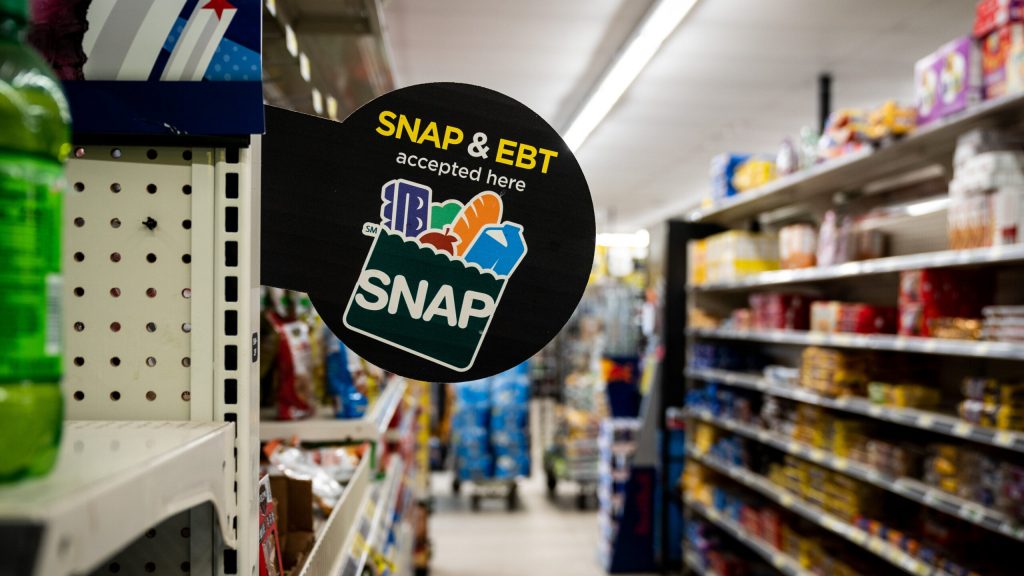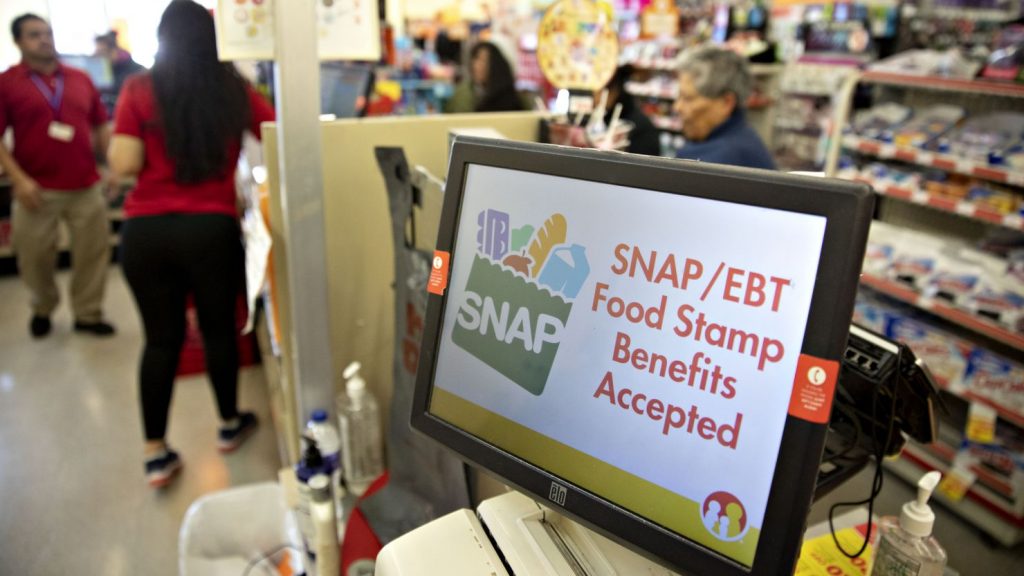Are you thinking about selling your home in San Antonio but worried it might affect your food stamp benefits? You’re not alone.
Many homeowners who rely on government assistance like SNAP wonder how a big financial change will impact their support.
In Texas, selling your house can have implications for your eligibility for these crucial benefits.
Here’s an important fact: Selling your property may indeed influence whether you continue to get food stamps or qualify for Medicaid because of the income and asset limits these programs enforce.
But don’t fret!
Our article is dedicated to guiding you through the maze of rules and what they mean for you after selling your abode.
Discover key tips to help ensure that getting value from your home doesn’t cost you vital nourishment or healthcare services.
Stay informed—your peace of mind may just depend on it.
Quick Summary
- Selling your house in Texas may put you over the asset limit for Food Stamps and Medicaid.
- Moving to a cheaper home can affect your government benefits, too.
- You must follow rules about spending down assets, gifting a home, and not selling below market value.
- Always check for state liens on your property before selling it.
- Talk to an expert before you sell your home if you’re on government assistance.

How Selling a House Can Affect Government Benefits in Texas
Selling a house can impact government benefits in Texas, such as food stamps and Medicaid.
It is important to understand the potential consequences before making any decisions about selling your home.
Selling your house in Texas may impact your eligibility for food stamps, as it can alter your financial circumstances.
It’s recommended to consult with the appropriate authorities or social services to understand the specific implications for your situation.
Food Stamps
Food Stamps, or SNAP benefits, help many families in Texas buy food. If you sell your house, it could change whether you can get these stamps. Your eligibility is tied to how much money and what kinds of things you own.
The state looks at your income and assets when they decide if you qualify for Food Stamps.
Selling your home might put more money in your pocket than the state allows for Food Stamp recipients.
You must stay under the asset limits to keep getting help with buying groceries.
Owning a car can also affect your Food Stamp benefits. The state will check its value and may count it as an asset.
Before selling your San Antonio home, think about how it will impact the financial support you get from SNAP.
Receive a Fair & FREE No Pressure Cash Offer
Medicaid
Selling your house in Texas could impact your Medicaid eligibility. If the sale brings your assets over the state’s limit, you might lose Medicaid coverage.
Also, there could be a penalty period based on the home equity when selling a house and receiving Medicaid benefits.
Consider consulting with an expert to understand how selling your house may affect your Medicaid coverage.
It’s essential to weigh these considerations carefully before making any decisions about selling your home and its potential impact on government benefits such as Medicaid.
Factors to Consider Before Selling Your House
Consider how selling your house may impact your government benefits, such as food stamps and Medicaid.
Explore options for moving to a less expensive home while still maintaining eligibility for assistance programs.
Impact on benefits
Selling your house may affect eligibility for Medicaid and Food Stamps in Texas. It could lead to a Medicaid penalty period or disqualification if the profits exceed the state’s asset limit.
Consider consulting with an expert before making any decisions, as selling a house can impact government assistance programs beyond just Medicaid and Food Stamps.
The value of your car is also considered when determining food stamp eligibility in Texas.
Various income and asset limits apply, along with specific rules regarding expenses that could affect benefits.
Additional Real Estate Advice:
- Working With A Realtor To Sell Your House in San Antonio
- Tips For Selling Your House For Cash Quickly
- is Selling Your House as is a Good Idea
- How To Sell My House Fast For Cash in San Antonio
- Can You Sell a House With Termite Damage
- is FSBO a Good Idea
- If I Sell My House Will I Lose My Food Stamps
- is Selling Your Home by Yourself a Good Idea
- is it Better To Sell Your Home For Cash
- is Selling Your Own Home Worth it
- The Benefits of Selling a House Fast For Cash in San Antonio
- Can I Sell My House To My Friend Without a Realtor
- Why isn’t My Home Selling Faster
- Is Selling Your Home and Renting a Good Idea
- is it a Good Idea to Sell My House Now
- is it Safe To Sell Your Home For Cash
- is Selling Your House a Capital Gain
- Need To Sell My Home Fast Pros & Cons
- How Much Does it Cost To Sell a House in Texas
- Can I Sell My Parents Home With a Power of Attorney
- Can You Sell a House With Mold in Texas
- Can You Sell Your Home With Code Violations in Texas
- Can I Sell My Home and Still Live it Rent-Free
- Can You Sell a House With a Mortgage
- Top Reasons To Sell Your House Fast
- Should I Sell My House Subject To
- How To Sell Your House Fast Without a Realtor
- Can You Sell a House With Unpaid Property Taxes
- Alternative Ways To Sell A House Quickly
- Top 10 Ways To Sell Your Home Quickly
- is Selling Your Home To a Real Estate Investor a Good Idea
- Is It a Good Time to Sell My House Now
- Who Buys Houses For Cash Near Me
- Paperwork For Selling a House Without a Realtor
- I Lost My Job Should I Sell My House
- Can I Refuse To Sell My House To an Investor
Moving to a less expensive home
Consider downsizing to a more affordable home as it could impact your eligibility for Medicaid and Food Stamps in Texas.
Selling your current house and moving to a less expensive one could affect your asset limits for government assistance programs, possibly disqualifying you from receiving benefits.
Moving to a less costly home would be subject to specific guidelines and may involve penalties based on the equity of the sold property.
Ensure that you carefully assess the potential impact on your eligibility for Medicaid and SNAP benefits before making any decisions regarding selling your house and relocating to a more budget-friendly residence.
Receive a Fair & FREE No Pressure Cash Offer
Rules and Guidelines for Selling a House While Receiving Benefits
When considering selling a house while receiving benefits in Texas, it’s important to understand the rules and guidelines for Medicaid asset thresholds, spending down assets, gifting the home, and more.
Ensuring compliance with these regulations can help homeowners avoid losing their government benefits when selling their homes.

Medicaid asset thresholds by state
Homeowners in San Antonio looking to understand how selling their property may affect their eligibility for Medicaid need to be aware of the asset thresholds in Texas.
Here’s a snapshot of the limits:
| State | Medicaid Individual Asset Limit | Medicaid Married Couple Asset Limit |
|---|---|---|
| Texas | $2,000 | $3,000 |
This table indicates the maximum amount of assets someone can retain to be eligible for Medicaid.
Selling your home could push your total assets over these limits. Profits from the sale count toward your asset total, which could risk Medicaid disqualification.
Remember, Medicaid considers both income and assets for eligibility. Ensure to get tailored advice as these figures are subject to change and may not be up-to-date.
Receive a Fair & FREE No Pressure Cash Offer
Spending down assets
Selling a house affects Medicaid eligibility, and individuals may need to spend down assets to qualify.
This can involve paying off debts, making home improvements, or purchasing exempt assets.
It’s important to ensure these expenditures comply with Medicaid guidelines and are properly documented.
Gifting the home
Transferring ownership of your home as a gift to someone else can impact your eligibility for government benefits in Texas.
Here are the important factors to consider when gifting a home:
- Medicaid Rules: Gifting your home could result in a period of Medicaid ineligibility based on the value of the gifted property.
- Asset Limits: The value of the gifted home may affect your eligibility for food stamps and other state-funded benefits due to asset limits.
- Medicaid Penalties: Consider potential penalties if you gift your home, as it could impact your Medicaid coverage and create an ineligibility period.
- Eligibility Review: Understand that gifting the home may trigger a review of your eligibility for various assistance programs, including Medicaid and food stamps.
- Seek Advice: Before gifting your home, seek advice from a qualified professional to understand its impact on your government benefits.

Not selling below market value
Selling your house below its market value can still impact your eligibility for government benefits. Even if the sale price is below what you think it’s worth, the state may consider the fair market value when assessing your assets for benefit eligibility.
This means that selling below market value might not protect your benefits as expected.
When considering a sale, it’s crucial to be aware of how it could affect your Medicaid and food stamp eligibility. Always seek guidance from relevant authorities or professionals to understand the potential impact of selling your house on government assistance programs in order to make informed decisions.
Receive a Fair & FREE No Pressure Cash Offer
Checking for state liens
Before selling your home, it’s crucial to check for any state liens. State liens can impact the sale of your house and may affect eligibility for government benefits such as Medicaid and food stamps in Texas.
Ensuring there are no outstanding liens on your property will help avoid complications when selling your home and protect your access to essential benefits.
It is important to verify if there are any state liens on the property before proceeding with the sale. State agencies have the authority to place liens on properties if individuals owe debts related to Medicaid or other state-funded benefits received.
In Conclusion
In Texas, selling your house could impact your eligibility for Medicaid and Food Stamps. Consider the potential consequences before making a decision.
Take into account the rules and guidelines regarding asset thresholds and Medicaid penalties.
Ensure you understand how selling your home may affect your government benefits in Texas. Be informed about the specific rules for SNAP (Food Stamps) and other assistance programs that could be impacted by selling your house.
Receive a Fair & FREE No Pressure Cash Offer

FAQs
1. What happens to my food stamps if I sell my house in Texas?
When you sell your home in Texas, it might affect your food stamps since the money from the sale can change whether you meet asset limits for SNAP.
2. Can selling my house impact Medicaid coverage in Texas?
Yes, selling your home can have an effect on Medicaid eligibility because it may count as an asset transfer and could put you over Medicaid’s asset limits.
3. Are there any rules about homeownership for people getting food stamps?
SNAP homeowner rules allow owning a home without harming benefits but selling that home might result in funds that exceed SNAP program asset exemptions.
4. Do I need to worry about a lookback period when selling my house if I’m on Medicaid?
Medicaid has a lookback period where recent asset transfers are checked; this counts when assessing if the sale of your home affects your coverage.
5. Will housing assistance or other public aid be at risk if I sell my property while receiving them?
Selling a house may influence state-funded benefits including housing support and subsidies by changing what counts as income or assets under affordable housing programs.
We Pay Cash For Houses in San Antonio?
We Buy Houses in San Antonio Regardless of Condition, Location, or Price!
Get a cash offer for your San Antonio home by filling out the short online form below.
Our team of savvy real estate problem-solvers is here to guide you through our fast home selling process and give you a fair offer on your home!